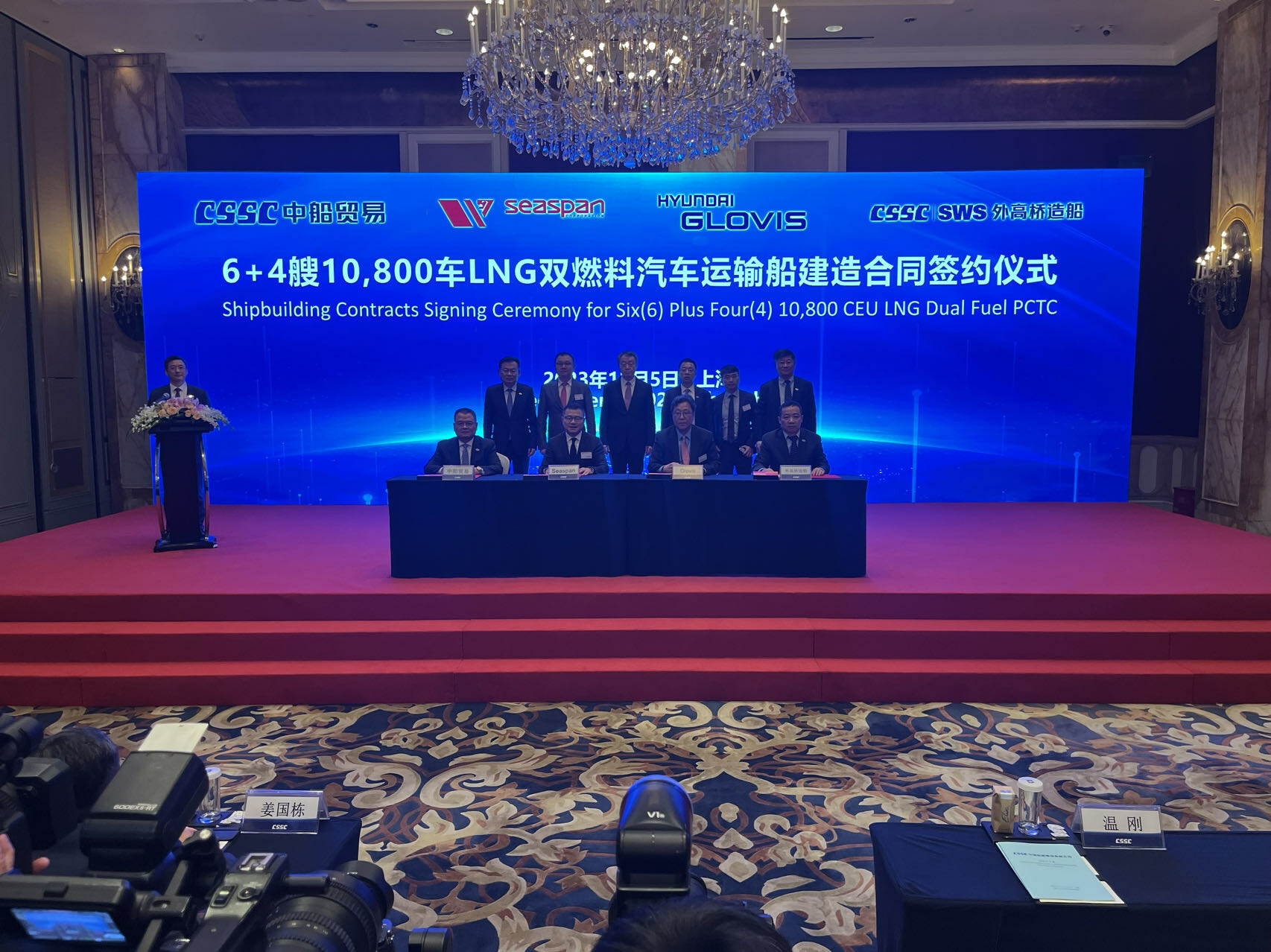Seaspan Corporation (Seaspan), the world-leading owner and operator of containerships, continues quality growth through the 10,800 CEU dual-fuel LNG, with ammonia and methanol ready, Pure Car and Truck Carrier (PCTC) newbuild program in partnership with a market-leading car carrier, Hyundai Glovis (Glovis).

As one of the world largest car carriers and part of the Hyundai Motor Group, Glovis can leverage Seaspan's proven competencies of consistent operational excellence, innovative customer partnership, and solid financial strength. The vessels will be under long-term time charter upon delivery and, as the largest PCTCs under development to date, will bring unparalleled quality, scale, and flexibility to Glovis.
With a proven track record of working with major shipping lines and shipbuilders to develop a customer-inspired alternative fuel vessel portfolio, Seaspan negotiated the purchase from a China State Shipbuilding Corporation shipyard – Shanghai Waigaoqiao Shipbuilding. These state-of-the-art dual-fuel LNG PCTC vessels will be methanol and ammonia-ready, underscoring Seaspan's leadership in transition pathways, innovative ship design, and newbuild execution, in addition to Seaspan's existing 70-vessel newbuild program which includes 25 dual-fuel LNG containerships.
"This deal signifies our customers' trust and value of Seaspan's commitment and capability executing alternative fuel initiatives," emphasized Bing Chen, President and CEO of Seaspan. "By incorporating our extensive experience in dual-fuel LNG containerships, while working proactively with all stakeholders during this decarbonization journey, Seaspan is uniquely poised to contribute to the standards and progress of sustainable shipping."
"We're extremely proud of partnering with Glovis, the market leader in the PCTC sector, and leverage our integrated platform to facilitate their strategic success," added Kun Li, Seaspan's Chief Commercial Officer. "As jurisdictions seek to transition away from conventional fueled vehicles to electric vehicles, we see this as an opportunity to not only meet the current demand for sustainable shipping solutions but also support the global initiative for cleaner transportation alternatives."